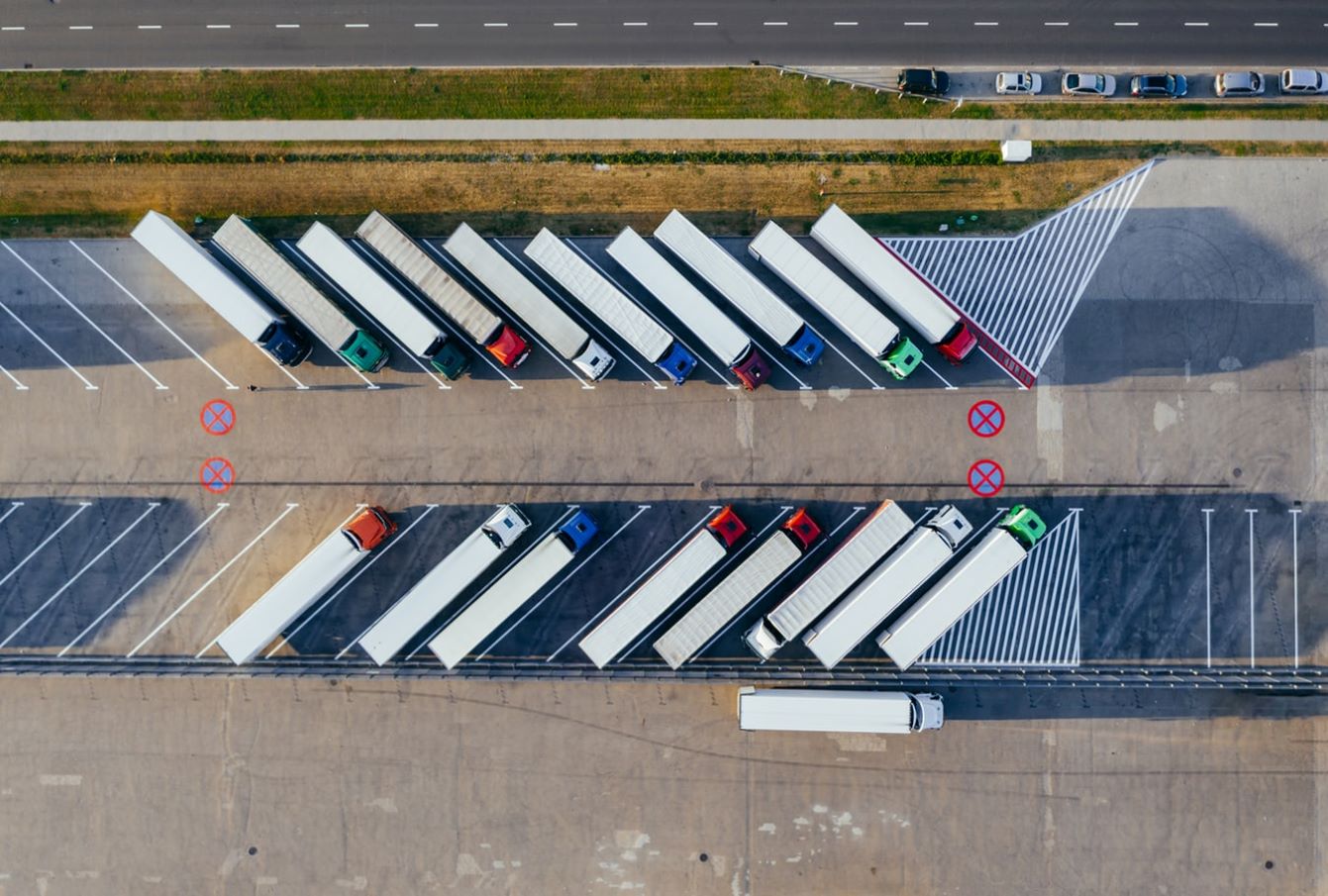 COVID-19: urgent EU action needed on road borders, drivers and financial support
COVID-19: urgent EU action needed on road borders, drivers and financial support
As the COVID-19 outbreak continues, urgent measures are needed to address the impact on essential goods transport and passenger transport within and among EU Member States.
Critical action includes reducing truck border crossing times, standard driver requirements, and swift financial support to passenger and freight road transport operators on the brink of collapse.
TACKLING LONG QUEUES AT BORDERS
Bottlenecks at EU borders have been causing unnecessary delays and interruptions of supply chains. The European Commission’s green lane guidelines announced on March 23rd set a 15-minute maximum border crossing time for vehicles carrying any type of goods.
IRU General Delegate Raluca Marian said: “We welcome the Commission’s guidelines on green lanes, and the announcement that all freight qualifies to access those green lanes, since all goods being transported by road are essential. We regret, however, that a provision on long border waiting times has been included. We know by experience that maximum 15-minutes per truck will continue to result in huge delays and the situation will remain unchanged. There shouldn’t be any systematic checks at borders.”
COORDINATED ACTION ON DRIVER REQUIREMENTS
Internationally recognised documents are the best option to maintain much-needed transport flows. Requesting additional forms and/or health certificates from drivers would only hinder supply chains. IRU welcomes the Commission’s recommendation to Member States that drivers of freight vehicles should not be asked to produce any document other than their driving license. We encourage Member States to follow these guidelines. We also ask all Member States to give drivers access to protection equipment and testing facilities, preferably near border crossing points.
IRU also urges all European stakeholders to show flexibility in their approach to tackling COVID-19, particularly in terms of professional driving requirements. Professional drivers cannot drive if their driving licenses, training certificates or vehicle checks are not up to date. However, as the relevant certification and test centres are closed, drivers cannot obtain the necessary paperwork. The European Commission has a key role to play in promoting Member States tolerance initiatives. It is in the ideal position to provide EU Member States with consistent guidance and recommend that the validity of professional documents and inspections should be extended during the current COVID-19 pandemic.
FINANCIALLY SUPPORTING PASSENGER AND FREIGHT TRANSPORT OPERATING COMPANIES
International coach transport and national passenger transport markets have been hit the hardest over recent weeks, with a 100% reduction in tourist services and a 90% reduction in intercity services due to the COVID-19 outbreak. While passenger travel is expected to pick up slowly once the restrictive measures are lifted, the road passenger transport sector, made of some 360,000 companies and directly employing 2 million people, is close to collapse.
The slowdown of the economy has also affected many types of freight transport. For example, vehicle manufacturers have stopped work and the supply of vehicle parts has also dramatically reduced. Container freight has similarly decreased dramatically following the reduction in inter-continental shipments. This has put road transport operators at serious risk.
Many road freight operations are conducted at low margins by companies without cash reserves. Stopping or massively reducing road freight activities is therefore bringing transport operators to the brink of collapse.
Without swift financial support, very few road transporters will remain operational once the restrictive measures have been lifted. And once the restrictions are lifted, economies in Europe and beyond will need road transport operators to resume scaled operations immediately to support economic recovery.
Following the adoption of the European Commission Temporary Framework for State Aid Measures, EU Member States will be in a position to provide financial assistance to support their economies. Passenger and logistics road transport companies, as the lifeblood of trade and daily life, have been particularly negatively affected by the restrictive measures required to curb the spread of COVID-19 and should be given priority support accordingly.
“With every day that passes, the need for swift, decisive action becomes more pressing” said IRU Secretary General Umberto de Pretto. “European challenges require concerted European measures and coordination worldwide. We call on the European Commission and all EU Member States to continue supporting the road transport sector and to coordinate their actions with the UN and other global stakeholders in these unprecedented and challenging times.”
 IRU calls on governments to help keep road transport supply chains and mobility networks moving
IRU calls on governments to help keep road transport supply chains and mobility networks moving
The coronavirus (COVID-19) continues to spread worldwide. In a rapidly changing situation, the impact of the pandemic on the daily lives of people, companies and governments is increasing by the hour. The most immediate concern for the road transport sector is to maintain supply chains, in particular for basic necessities such as food and medical goods, as safely as possible for transport workers and citizens and in compliance with the latest relevant government guidelines.
The industry is doing its best to cope with a difficult situation, with rules and restrictions that change quickly and often randomly or uncoordinated. Yet the industry takes its social responsibility seriously in order to continue to operate in the best possible way during the crisis. The IRU and its network of members continue to monitor the situation in regions and beyond by advising transport companies on the management of the pandemic and its impacts. The IRU has implemented crisis and continuity plans, including preventive measures to protect eligible personnel for transport workers and citizens, and in compliance with the latest relevant government guidelines.
The movement of people and goods needs roads. The production and distribution of almost every good on the planet depends, at some point, on the services provided by road transport operators. Based on the significant decrease in intercontinental container shipments, IRU estimates a decline in global road transport activity up to 20% in 2020, depending on how long the situation will continue. This could result in an overall loss of the revenues of the operators of 2 trillion dollars.
Nearly 6% of all employed people around the world work in the road transport sector – largely in small and medium-sized enterprises which, due to their size, are not able to cope easily with external shocks such as the economic impacts of COVID-19.
The economic burden is high and rising for both workers and business owners. They are doing their best to stay afloat, but functioning supply chains and mobility of essential workers are dependent on them remaining in business.
In order to maintain the functioning of road transport networks, the IRU calls on governments and authorities, as well as banks and financial institutions, to take various temporary actions to help alleviate the burden of the crisis on operators.
SHORT TERM ACTIONS TO MANTAIN ROAD NETWORKS SAFE AND OPEN, WHAT IRO SUGGESTS:
- Operating companies should implement higher standards of driver health and safety for cargo loading and unloading (in particular in quarantine areas) and as regards the transport of documents to demonstrate compliance with health rules.
- Operating companies must ensure traceability in the registration and maintenance of drivers and workers.
- Governments and authorities should clearly communicate procedures for the application of vehicles, drivers and goods or passengers, in particular for quarantine areas.
- Governments and authorities should closely coordinate and publish measures to mitigate the impact of restrictions on supply chains
ECONOMY GOVERNMENTS AND AUTHORITIES’ SHOULD
- Simplify rules on driving and rest times to ensure efficient logistics for critical goods (food and medical supplies) and allow drivers to leave affected regions or quarantine areas as quickly as possible to return home.
- Increase delivery restrictions to ensure that delivery can take place at safer times, such as at night.
- Facilitate the repayment terms of the loan and the loan from financial institutions, in particular for loans from large vehicles, and the deadlines for payment of VAT and taxes.
- Remove or reduce the tolls and tariffs of road users for trucks and coaches.
- Establish support programmes for temporary unemployed road transport workers.
- Avoid unilateral measures by the competent authorities to facilitate the cross-border transport of goods (in particular essential items such as food and medical supplies).
- Provide emergency financial aid programs for affected businesses to prevent bankruptcies.





